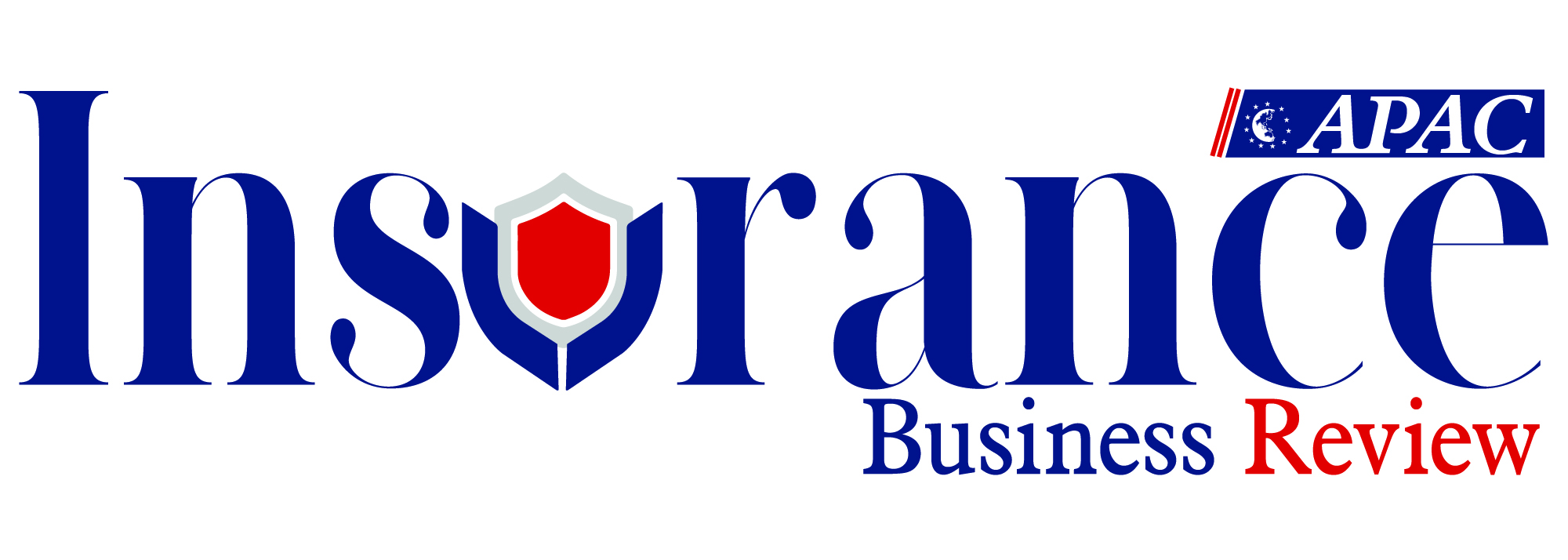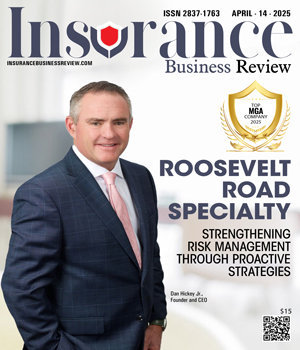Thank you for Subscribing to Insurance Business Review Weekly Brief
Insurance Business Review: Specials Magazine
Loss control and claims handling have evolved from secondary concerns to frontline defenses in today’s risk management playbook. With rising claims costs and heightened reputational risks, businesses can no longer afford a reactive, wait-and see approach. Roosevelt Road Specialty redefines risk management by embedding proactive mitigation strategies directly into its underwriting process. As a managing general agent (MGA), Roosevelt Road prioritizes hands-on, people-first risk management in every client interaction. Whether through pre-bind inspections, on-site visits, or safety training, the company combines advanced analytics and next-generation predictive modeling with a boots-on-the-ground methodology. An internal team of labor law attorneys and specialized claims adjusters supports this effort. They thoroughly investigate incidents, assess liability, and facilitate claim resolutions with legal and industry-specific expertise. Businesses leverage these insights to implement tangible changes, modify risky behaviors and adopt practical measures that significantly reduce the likelihood of future claims. A Proactive Approach to Risk Management Roosevelt Road Specialty’s proactive mindset became even more critical in the post-2008 landscape. As industry consolidation pushed competitors to outsource essential services like claims handling and loss control, Roosevelt Road strengthened its in-house expertise. By keeping these functions within its core operations, the company delivers a specialized approach that reduces claim severity and maximizes long-term value for carriers, brokers, and insured parties. “Claims handling and loss control are often overlooked,” Dan Hickey Jr., founder and CEO, said. “We treat them as central to the process, giving our clients confidence that they have the best tools, strategies, and outcomes working in their favor.” With deep expertise in four key industries—construction, sports and entertainment, residential real estate, and senior living—Roosevelt Road tailors policies to the unique risks of each sector. Whether crafting flexible excess and surplus solutions or operating within the strict confines of standard coverage, the company ensures long-term stability by integrating a comprehensive risk strategy with every policy. Roosevelt Road proves that the smartest way to manage risk is to prevent it in the first place. The Growth Blueprint Roosevelt Road prioritizes organic growth over aggressive acquisitions, focusing on product diversification and geographic expansion to strengthen its market position. For instance, in the habitational real estate sector, the company goes beyond core coverages by layering complementary solutions such as property insurance and cyber insurance. An employment practices liability insurance (EPLI) package is under development and will be offered soon. This holistic approach results in a more comprehensive risk management package, providing clients with robust and tailored protection. A Meaningful Risk Participant Roosevelt Road stands out in the market by taking on a meaningful share of every risk it underwrites, unlike many MGAs that function purely as intermediaries with profit-sharing arrangements. Through Roosevelt Road in the U.S. and Roosevelt Road Re, Ltd., a Class 3B reinsurance company based in Bermuda, the firm has built a solid framework supporting long-term financial stability and disciplined growth. With over $1.5 billion in primary insurance written and reinsurance ceded to its Bermuda affiliates, its commitment to risk-sharing is both strategic and substantial. ... Read More
Top 10 MGA Companies
Imagine launching a new insurance product not in months, but in days. Eliminating infrastructure maintenance. And give customers seamless, data-driven experiences from policy issuance to claims resolution. That’s the promise of Duck Creek Technologies A leading provider of SaaS-based core systems for the property and casualty (P&C) insurance industry, Duck Creek is built to help insurers thrive in a dynamic, customer-first world. Its differentiator lies in its cloud-native, low-code platform that accelerates time to market, automates complex workflows and enables real-time product configuration—without the IT bottlenecks that typically slow insurers down. At the center of Duck Creek’s offering is the Duck Creek Suite, a comprehensive platform powered by Duck Creek OnDemand—the company’s cloud delivery model. OnDemand provides a secure, always-updated environment that removes the need for manual system upgrades or infrastructure oversight. This future-proof approach enables insurers to focus on delivering modern products and services, rather than managing legacy systems. “We are focused on working closely with our customers to help best position their business in these evolving market and macro environments,” says Michael Jackowski, CEO. That vision is reflected across every part of Duck Creek’s offering. In a business where time-to-market can mean the difference between gaining or losing competitive ground, insurers often struggle with legacy systems that demand extensive coding, lengthy testing cycles and significant IT intervention just to launch a new product. Duck Creek changes that dynamic entirely. With Duck Creek Policy, insurers are empowered to introduce, update and manage products with remarkable speed and flexibility. Its low-code, configurable foundation allows business teams—not just developers—to adapt real-time policy rules and coverage options. This means insurers can respond immediately to emerging market demands or regulatory changes without undergoing costly IT overhauls, giving them the agility to stay ahead of shifting expectations. Once a product is introduced, the value of seamless operations becomes even more critical—especially when policyholders need support. That’s where Duck Creek Claims comes in. Designed to streamline the full claims lifecycle, the platform leverages AI and machine learning to guide adjusters through intelligent, realtime decisions. From first notice of loss to final settlement, every step is optimized—automating tasks, detecting fraud, ensuring compliance and integrating third-party data sources to validate claims faster and more accurately. The result is a smoother, more transparent experience for customers and a more efficient process for insurers. ... Read More
Many property and casualty (P&C) insurers rely on forms and rates from the International Organization for Standardization (ISO) to maintain compliance across multiple states. But when ISO introduces a new water damage endorsement in response to rising climate risks, the industry faces a familiar challenge: how to update thousands of policies efficiently—without disrupting operations or risking regulatory penalties. For insurers dependent on manual processes, the task becomes overwhelming. Each policy requires review, revision, and refiling for every jurisdiction. That’s where Insurity makes a difference. A leader in cloud-native insurance compliance, Insurity offers the Circ platform—designed to navigate complex regulatory environments. Circ automatically detects updates from organizations like ISO, updates policy language, and generates the necessary filings in real-time. By removing manual steps, Circ helps insurers, managing general agents (MGA), self-insured organizations and risk pools maintain compliance with speed and precision. “The insurance industry is more important than ever as companies embrace AI and analytics to provide more impactful and affordable coverage and service for the industry’s customers,” says Jeff Clarke, CEO. That’s exactly the direction Insurity is heading with Circ. The platform doesn’t just identify regulatory changes but completes the process by generating and submitting all required documents, effectively automating what used to be a multi-step, time-consuming task. By eliminating filing errors and missed deadlines, Circ allows insurers to stay compliant instantly, without the operational delays that once defined the process. While Circ manages compliance updates, the Insurity Policy platform supports the entire policy lifecycle. It integrates directly with Circ to ensure every policy reflects the latest regulatory changes—without additional effort. From quoting and underwriting to issuing and renewing policies, the platform centralizes policy management in one seamless system. Insurers reduce turnaround times, minimize errors, and elevate service quality Highly configurable and easy to use, Insurity’s platform adapts to a wide range of insurance products, helping insurers keep pace with a dynamic market and evolving customer expectations. A policy isn’t complete until the payment is processed. Yet billing often becomes an afterthought—until something goes wrong. Insurity’s Billing platform eliminates this risk by automating the entire process. It generates invoices, tracks payments and handles collections without manual intervention. The system syncs directly with policy and claims data, keeping billing accurate and up to date. With flexible payment options and a streamlined user experience, insurers reduce administrative burden while policyholders enjoy a smoother, hassle-free transaction. ... Read More
CXO INSIGHTS

Navigating the Insurance Maze: Redefining Insurance Renewals and Claims Handling
Kimberly Clifford, Director, Claims Management, EMCOR Group, Inc

The value of service-led claims in a world of social inflation and nuclear verdicts
Beth Diamond, Group Chief Claims and Litigation Officer, Beazley

Reducing the Threat of Nuclear Verdicts
Holly Hollenbeck, JD, CRIS, Regional Vice President, Legal and Contracts, Marsh McLennan Agency

The Importance of Claim Advocacy in Workers' Compensation
Alexandru Chirita, Workers’ Compensation Manager, Volvo Cars

From Liability to Opportunity: Transforming Risk Management in Hospitality
Jennifer Pack, Vice President of Risk Management, Hyatt Hotels Corporation[NYSE: H]
IN FOCUS
How MGAs Are Transforming Insurance through Specialization
MGAs increasingly specialize in niche insurance markets, offering tailored products like cyber insurance
Opportunities for Investors in Managing General Agents (MGAs)
Managing General Agents (MGAs) occupy a unique and increasingly pivotal position within the insurance ecosystem,
EDITORIAL
Driving Innovation and Efficiency in Insurance through MGAs
One of the primary reasons MGAs are thriving today is the acceleration in technological innovations, which reshape how policies are written, sold, and managed. This includes using artificial intelligence (AI) and machine learning (ML) to assess risk, automate underwriting, and streamline claims management. These innovations help insurance businesses improve efficiency, enhance customer experience, and significantly reduce operational costs.
MGAs also leverage advanced data analytics to drive better decision-making and improve the underwriting process. By using advanced predictive analytics, they can now offer more accurate pricing and coverage options tailored to policyholders' specific needs.
Looking ahead, as MGAs' roles continue to expand, so will the capital required to support their activities. In 2025, the market is expected to witness more private equity and venture capital investments in MGAs, enabling them to scale operations, expand reach, and further diversify product offerings.
The regulatory environment surrounding MGAs will also continue to evolve, fueling insurers and MGAs to stay ahead of changes in regulations, including those related to data protection, cyber insurance, and climate risk. It will be essential for MGAs to navigate these regulatory challenges to maintain their competitive edge and avoid costly fines or reputational damage.
The edition, MGA 2025, features Roosevelt Road Specialty, a specialty managing general underwriter with a hands-on, proactive approach to risk management.
The magazine also features the expert perspectives of Roy Hock, MBA, ARM, Director of Risk Finance and Casualty Insurance at Valero Energy Corporation and Michele Adams, Vice President, Corporate Functions Finance & EDLC at Walmart. These esteemed individuals share their invaluable insights regarding the developments and challenges within the sector and possible solutions. We hope the insights from industry leaders featured in this edition will assist you in making informed decisions for your businesses










